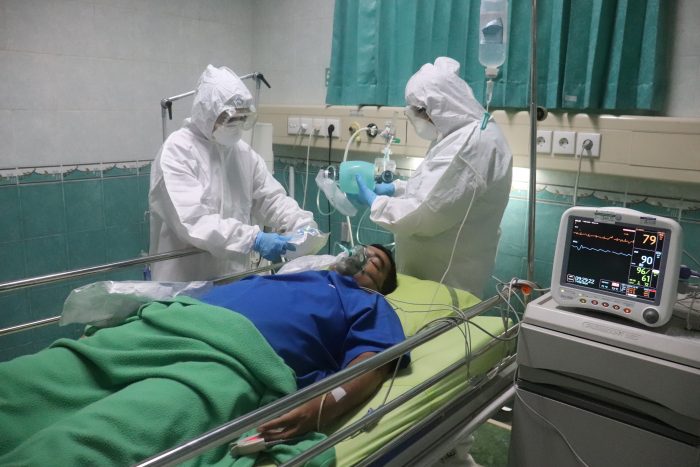Older Adults Helping Older Adults Live Their Best Lives
DHS Racial Equity Action Kick-Off – Day Five

Good morning,
I hope you’ve all had a good week! We’re in the final day of our Racial Equity Action Week, and I hope that each of you have found these readings, videos, and questions for consideration helpful. As many of us have learned over the last six months, beginning this work and our personal education in order to broaden our perspective around race and inequity and how they exist in our country can be overwhelming due to not being sure where to begin. My goal with this week has been to make these subjects approachable for each of us and applicable to our work and workplaces.
For our final day of readings today, we’re going to focus on current issues that face our country and topics specific to work at the Department of Human Services (DHS). This will not be a comprehensive list, but I hope that it can help you further dig into how race and equity affect our work. Today’s readings can be found here.
COVID-19 has affected all of us in some way this year. For many of us, it has consumed our daily work. Beyond that, it has touched all of our lives in some way, even if we have not experienced it or lost a loved one ourselves. Experiences are showing that this pandemic is not affecting all communities equally; non-white communities are experiencing the public health and economic crises acutely. Inequality.org’s COVID-19 and Inequality, NPR’s “As Pandemic Deaths Add Up, Racial Disparities Persist — And In Some Cases Worsen”, The Atlantic’s “In a Pandemic, All Some People See is Your Color”, and Kaiser Health News’s “Why Black Aging Matters, Too” all detail the pandemic’s effects on racial groups.
However, health disparities between different races are not new. “‘Racial Inequality May Be As Deadly As COVID-19,’ Analysis Finds” from NPR details this fact, and much of the Wolf administration’s health innovation work seeks to address these disparities. DHS has engaged in this work in North Philadelphia’s Health Enterprise Zone since 2017, and work is in place to study disparities and enact solutions in other communities around the commonwealth. This work must also extend to mental health and supporting culturally informed and appropriate behavioral health systems that are equipped to address trauma faced by non-white communities, writes NPR. We must also think about how inequity can affect children starting in their earliest years. “Education Inequality Starts Early” from the US News and World Report and “The School-to-Prison Pipeline” from Teaching Tolerance explains how inequity can set a foundation that affects children into adulthood.
As you read and watch these resources, I encourage you to think about the following questions:
- How have communities of color been impacted during the COVID-19 pandemic? Are these effects portrayed as the result of structural issues?
- How do inequities play out in my work? What can I do through my work to advance equity for all Pennsylvanians?
- How do I move forward with this knowledge?
- How can I apply what I’ve learned to my work? To my relationships with my colleagues? To my everyday life?
I also encourage you to have these conversations with your coworkers if you are comfortable and able to do so. This is an opportunity for us to learn together, share our experiences, foster understanding and community, and build stronger bonds through these difficult but extremely necessary conversations.
Remember, these articles are meant to be a foundation and introduction that you can build from. They are not the only sources and perspectives on these issues.
I always say that DHS’s work serves more than three million people directly, but it touches nearly ever Pennsylvanian at some point in their lives – be it through the early childhood education system, public assistance, child welfare, health care, or long-term care. Because of this, I feel that we have an obligation to be leaders in this space. Pennsylvanians and our nation are not a monolith. We all have different identities, experiences, backgrounds, and perspectives. We must be mindful about how our identities can shape our experiences and use this knowledge to be active allies against racism, inequity, bias, and discrimination that is both consciously held and unconsciously advanced.
Our education cannot end here. I encourage you to continue to pursue information and read in a way that broadens your perspective. Seek out voices and experiences that you may not know first-hand but from whom you can learn. This work can only make us stronger, more empathetic, and better public servants, colleagues, and people.
Moving forward, we will continue to share opportunities to grow and learn in this space. However, if you are looking for other avenues to continue to learn, I highly recommend Emmanuel Acho’s Uncomfortable Conversations With A Black Man series.
Listening with an open mind and an open heart is the first and most important thing we can do to be an active ally to our friends, neighbors, and colleagues. This is a constant journey, but I appreciate the time you have all taken to be a part of it with me.
Teresa Miller, Secretary of the Department of Human Services
Wolf Orders Halt on Indoor Dining, Limits to Gatherings Amid COVID-19 Surge
CMS Delays MIPS Application Deadline Until February 1
To further support clinicians during the COVID-19 Public Health Emergency (PHE), the Centers for Medicare and Medicaid Services (CMS) has extended the 2020 Merit-Based Incentive Payment System (MIPS) Extreme and Uncontrollable Circumstances Exception application deadline until February 1, 2021.
For the 2020 performance year, MIPS eligible clinicians, groups, and virtual groups can submit an application requesting for CMS to reweight one or more performance categories to zero percent due to the current COVID-19 PHE. If members have concerns about the effect of the COVID-19 PHE on your performance data, including cost measures, submit an application and cite COVID-19 as the reason for your application.
For additional information, consult the following resources:
- MIPS Extreme and Uncontrollable Circumstances Exception Application User Guide and Fact Sheet
- How to Submit an Extreme and Uncontrollable Circumstances Exception Application Video
- Extreme and Uncontrollable Circumstances Exception Webpage
- Quality Payment Program Exceptions Application Fact Sheet
Certified Investigator Course Registration Available
ODPANN 20-112 announces that registration for the Certified Incident Investigator (CI) Initial Certification Course is now available. The Certified Investigator course is being offered to all entities who need a CI certification in order to obtain or maintain compliance with Chapter 6100.402 Incident Investigation.
Please review the announcement for registration details.
ODP Updated Guidance Regarding Temporary Day Service Facility Closures

ODP Announcement 20-101 has been updated regarding temporary closure guidance for older adult daily living centers, structured day programs, LIFE Day Centers, adult training facilities, and vocational facilities. This guidance is related to the community spread of COVID-19 and when an individual or staff member is diagnosed with COVID-19 and has spent 15 minutes or more in the facility “within a 24 hour period starting from two days before illness onset (or, for asymptomatic patients, two days prior to test specimen collection) and ending with the time the person is isolated”. Additionally, this announcement describes the process for re-opening facilities by using the Community Participation Support and Older Adult Facility Reopening Tool.
Changes noted within the announcement include:
When facilities are in communities in moderate level of community spread, “Facilities may choose to close, stay closed, remain open, or reopen if previously closed. If a facility remains open or reopens while the level of community transmission is moderate, it is recommended that the facility” increase mitigation measures related to COVID-19, including but not limited to (1) informing participants with high risk needs of the “moderate” level of community transmission designation; (2) considering reduction in the number of service days to provide for additional cleaning; (3) reducing, or at a minimum, not expanding current capacity; and (4) making alternative transportation plans for anyone using public transit or multi-passenger vehicles with passengers from multiple locations.
When facilities are in communities in substantial level of community spread, the recommendation is for the facility to close or remain “closed until the level of community transmission returns to and remains in low or moderate for 14 days”.
“Should a facility remain open or re-open, it is recommended that the provider review the health risks of the individuals the provider serves and the behavioral risks (e.g. ability to tolerate masks, hand hygiene, social distancing) of COVID-19 transmission for the individuals. Providers should review the COVID-19 mitigation strategies used during transportation and service provision to determine whether additional COVID-19 mitigation strategies need to be implemented as a result of an increase in community transmission in the county where the provider operates. Providers should develop plans to protect the health and safety of their staff and the individuals they serve as well as the families of staff and of the individuals served that include the following:
- Changes to the method of service delivery and how staff will be deployed (e.g. remote versus in-person or in-home versus in congregate settings);
- Enhancements to existing or implementation of additional COVID-19 mitigation strategies in alignment with applicable COVID-19 guidance; and
- Communication of changes the provider has made to individuals, families, supports coordinators, and any other affected providers.”
Please see ODP Announcement 20-101 for all updates.
Maher Duessel Seminar on Governmental Accounting and Auditing
ACCSES Bridging the New Year Summit Sessions and Speakers
DDAP Announces SBIRT Training and Implementation Series
The Department of Drug and Alcohol Programs (DDAP) and the University of Pittsburgh’s Program Evaluation and Research Unit in the School of Pharmacy are leading a series of trainings to promote the practice of SBIRT (Screening, Brief Intervention, and Referral to Treatment) throughout 2021. This training series will provide health-care professionals and students with the opportunity to learn about the evidence-based practice and how to implement innovative practices into the current workflow.
Participants will receive continuing education credits upon completion of the following:
- Part 1: Online, Self-Paced SBIRT Curriculum (6 hours)
- Part 2: Virtual Interactive Skill-Building Seminar (3 hours)
- Part 3: Post-Series Assessment
Registration is FREE and will open in early 2021. See this flyer for further details and stay tuned for more information.
















